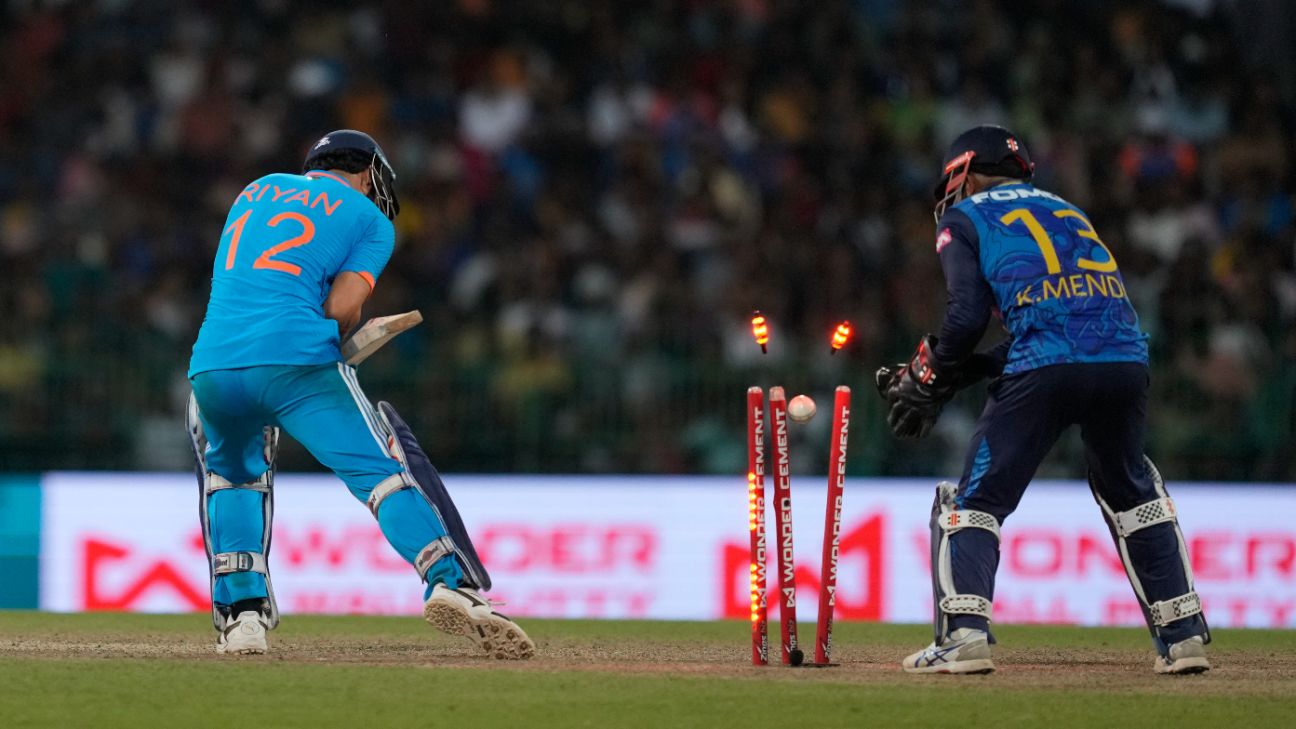Rohit: 'We didn't play enough sweeps, reverse sweeps, or paddle sweeps'
Written by I Dig Sports
Perhaps India should have swept the ball more. Or at least employed the sweep more effectively (given several batters were out playing that shot throughout the series).
"They were consistent with sweeps, taking their chances," Rohit said of Sri Lanka's batters. "There weren't a lot of runs scored down the ground. They didn't use the feet as much as we expected. It was about using sweeps and piercing that deep square leg and midwicket field. That is something we failed to do as a batting unit. We didn't play enough sweeps, reverse sweeps, or paddle sweeps, and used our feet too much. That was the difference.
"If you look at Kusal Mendis and Avishka Fernando today [who put on an 82-run stand], they got a lot of runs square of the wicket. They were using the turn, and sweeping, making the fielder move left and right. They were smart with how they batted and we were not.
"All in all, we need to admit where we have made mistakes, we didn't dominate against spin. On such wickets, you need to dominate a bit and the Sri Lankan spinners had consistently kept us under pressure in all three games."
It's strange to put India's batting against spin under the microscope, because while India's international limited-overs tracks have tended to be good for batting in recent years, India's batters are generally no strangers to turning tracks, which Rohit and others have emphasised through the series.
The approach for now, seems to be to let each batter figure their own strategy out when playing on big-turning tracks. Some may want to dart forward more often, but others may prefer to go deep into their creases. The thinking is that playing spin well looks different from batter to batter.
"It is more to do with individual plans rather than us telling them what to do or what shot to play. All these guys have come here playing so much cricket. All of a sudden to tell them to do things a little different - to play the shot that they are not comfortable with - is not ideal.
"That's where I have said, it's all about individual plans, how they want to take the bowlers on, what are the shots they want to play. It starts with your training, When you get to your sessions, I can see the guys are working hard in the nets whenever we get the opportunity to train as well. I don't see there being a lack of effort when we want to try and play different shots."
Although his team was modest with the bat, Rohit was easily the best batter of the series, hitting 157 runs at a strike rate of 141.44 across the three games. As an opener, he did enjoy the best batting conditions. But in games one and two, in which he scored fifties, he had ensured that the required run rate was not a major concern for batters coming after him.
"I knew that the runs that will be scored during the powerplay will be critical. I knew that the wickets will get a little slow after that, the ball will turn a bit and even the field is spread out. When there are only two fielders outside the ring, we had to take our chances. I took those chances whenever I felt that I could put the bowler under pressure. All the runs that you score over and above that, it benefits the team to play the remaining 40 overs.
"My personal effort was to ensure that I score as many runs as I could. It was not as if I wanted to throw my wicket away after the powerplay. I wanted to continue the momentum and intent, but I unfortunately got dismissed while trying to play a few shots. My batting plan is pretty simple and straightforward."
Andrew Fidel Fernando is a senior writer at ESPNcricinfo. @afidelf















 Phone: (800) 737. 6040
Phone: (800) 737. 6040 Fax: (800) 825 5558
Fax: (800) 825 5558 Website:
Website:  Email:
Email: 






